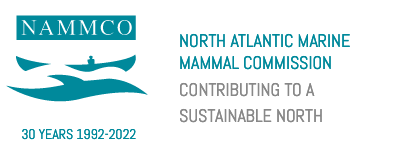NAMMCO appoints international observers to monitor sealing and whaling activities in selected areas in NAMMCO member countries. This is handled under the Provisions of the NAMMCO Observation Scheme for the hunting of marine mammals.
In 1996 NAMMCO adopted the Joint NAMMCO Control Scheme for the Hunting of Marine Mammals. The Scheme was reviewed several times and in 2021 it was replaced by the NAMMCO Observation Scheme. During the most recent review period (2018-2019) no observers were active. In 2020 and 2021 no observation activities were carreid out due to the COVID19 pandemic.
You find an overview of yearly scope of the observation Scheme 1998 – 2023 here. More detailed information on which hunts have been observed in which years can be found here.
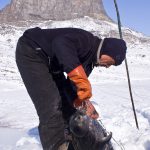
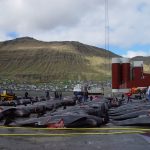
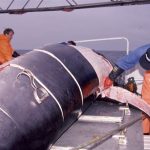
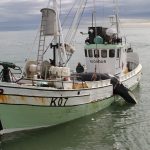
The NAMMCO Observation Scheme is administered by the NAMMCO Secretariat. Every year observers are contracted and travel to one or several of the NAMMCO member countries. The focus of the observation activities have included the pilot whale hunt in the Faroe Islands and sealing and whaling activities in Iceland, Greenland and Norway. Observations take place on board vessels and on shore, in connection with flensing, storage and landing/delivering of the catch.
The purpose of the Observation Scheme is to provide a mechanism to collect reliable information on all kinds of marine mammal hunting activities in the member countries. The Scheme shall provide a mechanism to oversee whether NAMMCO recommendations are implemented and national regulations are followed. Furthermore, the Scheme shall provide a foundation for member states to evaluate whether a recommendation is serving its purpose or not. Moreover, it should in general contribute to the improvement of the national regulations.
The Observation Scheme for the Hunting of Marine Mammals also contributes to ensuring transparency in whaling and sealing operations in the region.
NAMMCO observers have no authority (of jurisdiction) and consequently cannot intervene in the hunting or other activities connected with the hunting.
National inspectors are approved by national authorities to exercise control and if necessary, to intervene in the hunting or other activities connected with the hunting. This authority is enshrined in the national legislation.
The observers are formally appointed by NAMMCO and are selected according to their qualifications from a list of candidates nominated by member countries. As a general rule, NAMMCO observers are required to have at least the same level of qualifications and training as national inspectors and must be familiar with all relevant regulations in relation to the activities they observe. Observers are trained before going out into the field. For information on the most recent course click here.
The role of the observer is to oversee hunting activities and national inspection of these, in order to observe whether or not these are carried out in accordance with national legislation and decisions made through NAMMCO. Thus the observers must be given access to all objects of importance for the task at hand such as hunting permits, vessel logbooks, reports of catch, hunting equipment etc. NAMMCO observers are employed by, and responsible to, NAMMCO alone. They submit a written report to the NAMMCO Secretariat at the end of their assignment but are otherwise required to maintain the confidentiality of their observations. Observers are required to report on adherence of the national regulations but have no authority to intervene in hunting activities in any way. Actions with respect to possible infringements are the responsibility of the national control authorities. The Secretariat compiles an overview of observation activities each year for the annual review of the NAMMCO Council.
